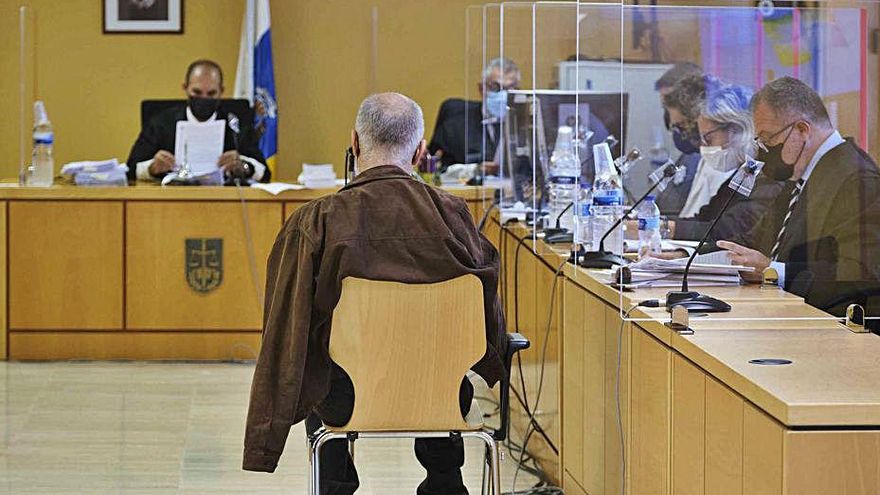
Faced with the decision of the Jury, the representative of the Prosecutor’s Office and the lawyers of the Private Prosecution (the Government of the Cabildo) and of the Popular Prosecution (the counselors of Podemos in the island corporation last term) requested that the magistrate José Luis González impose to Ignacio Castillo a sentence of eight years in prison, 20 years of disqualification for employment or public office and the return of 139,000 euros in total. The defense attorney requested the least possible sentence for his client.
After the testimony of the different witnesses and experts, as well as the defendant himself in the first three sessions of the hearing, the members of the Jury considered that it was proven that a Court of First Instance of Santa Cruz de Tenerife imposed an embargo of 510 euros per month on the payroll of the former head of Administration and Accounting to comply with alimony, which had to be paid to his ex-wife’s account. But the truth is that that amount went to the destination bank account directly from the company of the Tenerife Fairgrounds.
Of all that amount, the aforementioned public employee could justify that he returned 4,593 euros, but there is no evidence that he paid the remaining 11,222 euros. In his statement, the defendant affirmed that he requested authorization to carry out said irregular procedure from the then former manager of the public company Recinto Ferial de Tenerife, Ignacio Pintado Mascareño (now deceased), but this, in his statement before the Court that instructed the case, indicated that He had no knowledge of this direct transfer of money between the funds of the Cabildo entity and that of Castillo’s ex-wife.
At a certain point, the former head of Administration and Accounting drew up a document, signed only by him, in which he stated that he had returned more than 6,000 euros to the account of the commercial company. But such a document lacks total validity, both for the experts and for the Jury.
Another of the amounts owed by Castillo Melo to the entity for which he worked amounted to more than 9,000 euros based on numerous “cash vouchers”; that is, money that the staff took out to pay for urgent or personal expenses. The two subordinates of the former head of Accounting assured in the trial that, when the money withdrawn was returned as a “cash voucher”, the paper that reflected such withdrawal was torn. However, dozens of them appeared in Castillo’s closet, unbroken and without evidence in any other document that returned such amounts.
The members of the Jury also took into account the report of two experts from the consulting firm Ernst & Young, which they gave more credibility because its authors had access to more documentation. In that text it is stated that there are indications that Castillo stole 124,000 euros in cash. And that supposedly that amount was replaced by old and expired notes. A subordinate of the accused was surprised that, despite the high amount allegedly in the box, when money was needed, he had to go and look for it at the bank.
















